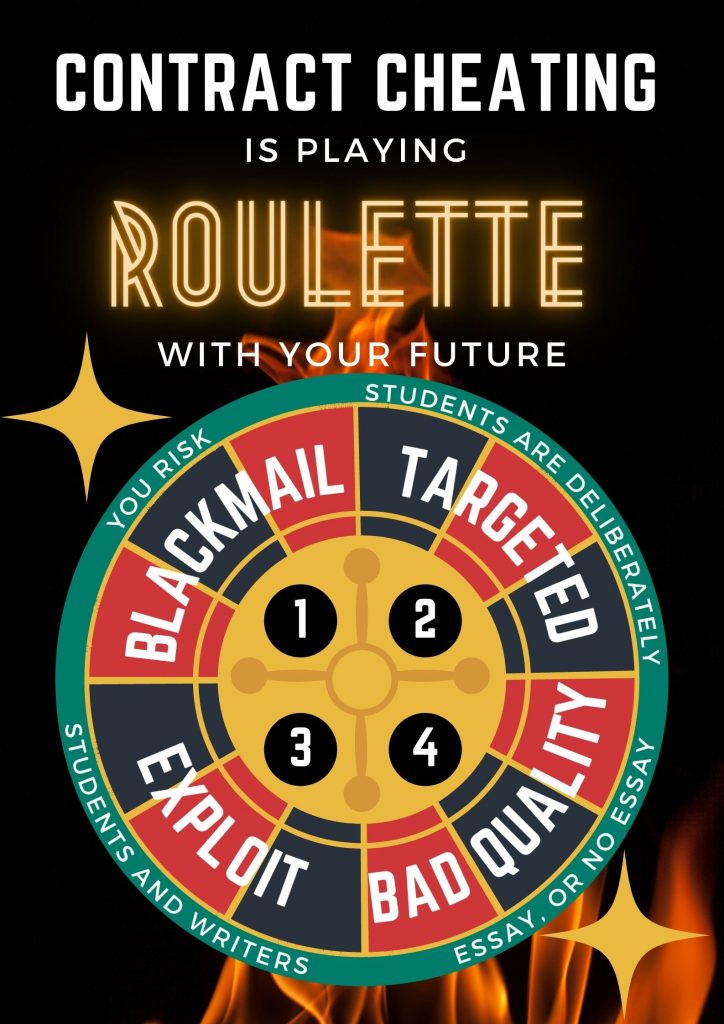Types of Academic Misconduct 1-5
Click on the buttons to explore the different types of academic misconduct.
Contract cheating is a very serious form of academic misconduct. Under CCCU’s Academic Misconduct Policy it is treated as Level 3, Gross Misconduct, which can result in expulsion from the university.

Contract cheating occurs when someone else writes all, or part, of your assessed work for you and you submit it as your own. Money does not need to change hands, and it includes work written by family and friends, as well as purchased services (such as from essay mills).
Whilst a vast majority of students will gain their degrees on their own merits, a few will be tempted to cheat. Those who are tempted should understand the real, lasting and devastating risks they might be taking:
- Companies that make their money tempting students to cheat are not ethical. Students who engage a 3rd party open themselves to blackmail, under the threat to pay more or tell the university what they have done. This threat can continue beyond university, with details kept and contact made with students who later have successful careers. If it is proved you cheated in your degree, your award can be rescinded (taken back). The choice to cheat can haunt a student for a long time.
Whilst CCCU does not condone cheating, if you are being blackmailed, we will help you. Contact Student Wellbeing at studentwellbeing@canterbury.ac.uk. You must, however, expect to face the implementation of CCCU’s Academic Misconduct policy.
- Essay mills do not sit and wait for students to find them. They target you. They may groom you. They will try to make their services seem legitimate. Companies selling essay writing services use social media platforms, advanced algorithms, aggressive marketing and fake accounts to persuade students to part with their money. Awareness is your first defence.
- Contract cheating companies exploit students by taking their money into an unregulated market. Most also exploit their writers, many of whom are situated in the global south, paying them very little to write for more affluent students.
- You are unlikely to get what you pay for. Contract cheating comes with no guarantee of quality or grades — at least not once you have handed over your card details. If you receive sub-standard writing in return for your investment, you have no comeback. Quality work can also be a trap, as you may then feel the need to pay for every assignment from then on, in case your tutor notices the change.
QAA (2020) Contracting to Cheat in Higher Education: How to Address Essay Mills and Contract Cheating. Available at: https://www.qaa.ac.uk/docs/qaa/guidance/contracting-to-cheat-in-higher-education-2nd-edition.pdf (Accessed: 1 December 2020).
 LearningSkillsHub
LearningSkillsHub